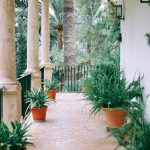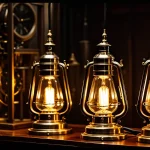Essential Factors in Choosing Pergola Materials for UK Gardens
Selecting the right pergola materials UK gardeners trust is crucial, given the UK’s unpredictable outdoor climate. The primary concern in choosing pergola materials is climate compatibility. Materials must withstand frequent rain, wind, and fluctuating temperatures without rapid deterioration. For instance, untreated wood can warp or rot, while metal may corrode if not properly coated.
Durability and lifespan are equally important. Garden pergola materials should last years with minimal maintenance. Hardwoods like oak and larch offer natural resistance, while aluminium or galvanized steel provide strong weather resistance. Composite materials also combine durability with easy upkeep, making them practical choices.
Also to discover : Crucial legal insights and safety guidelines for installing a wood stove in your uk residence
UK regulations often influence material selection, especially regarding planning permission. Although most pergolas are permitted development, larger structures or those close to boundaries may need formal approval based on material type and structural properties.
In summary, garden pergola materials chosen for UK gardens must balance resilience, longevity, and compliance with local rules. Accurate consideration of these factors enables selecting materials that thrive in the UK outdoor climate, ensuring a lasting and functional pergola.
Also to see : Elevate your dining experience with a lunch box hot box
Comprehensive Comparison of Pergola Material Types
When choosing between wood pergola UK, metal pergola UK, and composite pergola UK, understanding their distinct characteristics is vital. Wood offers a timeless, natural aesthetic. Hardwoods like oak or larch provide strong resistance to the UK outdoor climate, but softwoods require treatment to prevent rot and insect damage. Wood pergolas excel in customization but demand regular upkeep.
Metal pergolas, typically aluminium or galvanized steel, deliver superior weather resistance with minimal maintenance. They withstand rain, wind, and temperature shifts typical of the UK outdoor climate. Their sleek look suits modern garden styles but can be prone to surface corrosion if coatings degrade.
Composite pergola materials blend synthetic and natural elements, offering durability with low maintenance. These pergolas resist fading, warping, and insect attack, making them practical for diverse UK weather conditions. Composites may provide fewer design options but score highly in longevity.
Vinyl pergolas, while less common, present an alternative with ease of cleaning and resistance to moisture. However, they might lack the sturdiness required for harsher weather.
In summary, each garden pergola material type balances style, resilience, and upkeep. This pergola material comparison helps homeowners select material suited to their design preferences and the UK outdoor climate’s demands.
Durability and Maintenance: Ensuring Long-lasting Pergolas
Choosing durable pergola materials is essential for enduring the UK outdoor climate, which brings frequent rain, wind, and temperature fluctuations. Each material demands distinct pergola maintenance UK efforts to ensure longevity.
Wood pergolas require regular sealing or staining to protect against moisture and prevent rot. Untreated wood generally has a shorter lifespan due to susceptibility to dampness and insect damage. Hardwoods such as oak or larch offer better natural durability but still benefit from annual inspections and upkeep.
Metal pergolas UK are typically low-maintenance but need periodic checks for signs of corrosion, especially if paint or galvanization wears off. Aluminium resists rust well, while steel should be re-coated promptly if damaged. Cleaning metal surfaces helps maintain weather resistance and aesthetic appeal.
Composite pergola materials rank highly for weatherproof performance with minimal care. They resist warping, fading, and insect attack, making them ideal for those seeking a fuss-free option in the UK’s climate. Cleaning with mild detergent suffices to keep composites looking fresh.
Understanding maintenance needs alongside expected material lifespan aids in selecting a weatherproof pergola that remains attractive and structurally sound with manageable care over time.
Cost, Availability, and Sourcing Materials in the UK
When considering pergola materials cost UK, prices vary significantly depending on the chosen material. Wood pergola UK options, particularly hardwoods like oak or larch, tend to have higher upfront costs due to their natural durability and aesthetic value. However, softwoods represent a more budget-friendly alternative if regularly maintained. In comparison, metal pergola UK materials such as aluminium or galvanized steel usually occupy a mid-to-high price range, reflecting their corrosion resistance and longevity. Composite pergola UK products often come at a similar or slightly higher cost but offer savings in reduced maintenance over time.
Finding reliable UK suppliers pergola materials involves evaluating both specialist garden centres and large home improvement stores. High-quality material sourcing is essential to ensure that pergolas withstand the variable UK outdoor climate. Many suppliers provide pre-treated woods or coated metals, adding value through enhanced weather resistance.
Balancing cost with long-term value means considering both initial investment and maintenance expenses. A budget garden pergola might save money initially but could require frequent repairs or replacement. Choosing durable materials from trusted UK suppliers supports lasting satisfaction, reducing ongoing costs and effort associated with pergola upkeep.
Essential Factors in Choosing Pergola Materials for UK Gardens
Selecting suitable pergola materials UK requires prioritising climate compatibility to withstand the UK’s damp, windy, and changeable weather. Materials must resist moisture and temperature variations effectively to avoid premature damage. For example, untreated wood lacks sufficient resilience and risks warping or rot. Conversely, treated hardwoods and coated metals excel in resisting the harsh UK outdoor climate.
Durability and lifespan are pivotal. Garden pergola materials that endure over time reduce the need for frequent repairs or replacement. Hardwoods like oak combine natural strength with longevity, while metals such as aluminium and galvanized steel offer robust weather resistance. Composites offer extended lifespan with limited upkeep, bridging durability and convenience.
Regarding planning permissions, the UK restricts pergola height and proximity to boundaries, often influenced by material choice and structural complexity. For homeowners unsure about regulations, consulting local councils before finalising choosing pergola materials can prevent legal complications.
In summary, focusing on weather resilience, long-lasting strength, and regulatory compliance ensures selecting garden pergola materials that thrive in UK conditions, delivering both beauty and functionality with peace of mind.
Essential Factors in Choosing Pergola Materials for UK Gardens
Selecting pergola materials UK involves prioritising climate compatibility due to the UK’s often harsh and variable outdoor conditions. Pergola materials must resist moisture, frequent rain, and temperature swings to maintain structural integrity and appearance. For example, untreated wood is vulnerable to warping and rot, highlighting the need for treated hardwoods or metals with protective coatings.
Durability is a key consideration; garden pergola materials that endure over many years reduce the need for costly repairs or replacement. Hardwoods like oak naturally fend off decay, while metals such as aluminium and galvanised steel provide robust resistance to corrosion. Composites offer a blend of durability and low upkeep, ideal for a lasting pergola suited to UK weather.
Planning permission and UK regulations also influence material choice. Pergolas that exceed specific height limits or encroach on boundary lines often require approval. Material type can affect structural complexity, which local councils consider when granting permissions. Homeowners should consult authorities before finalising their choice to ensure compliance.
Overall, choosing pergola materials means evaluating how each option performs in the UK outdoor climate, weighs in on longevity, and meets legal requirements for a successful garden pergola project.








